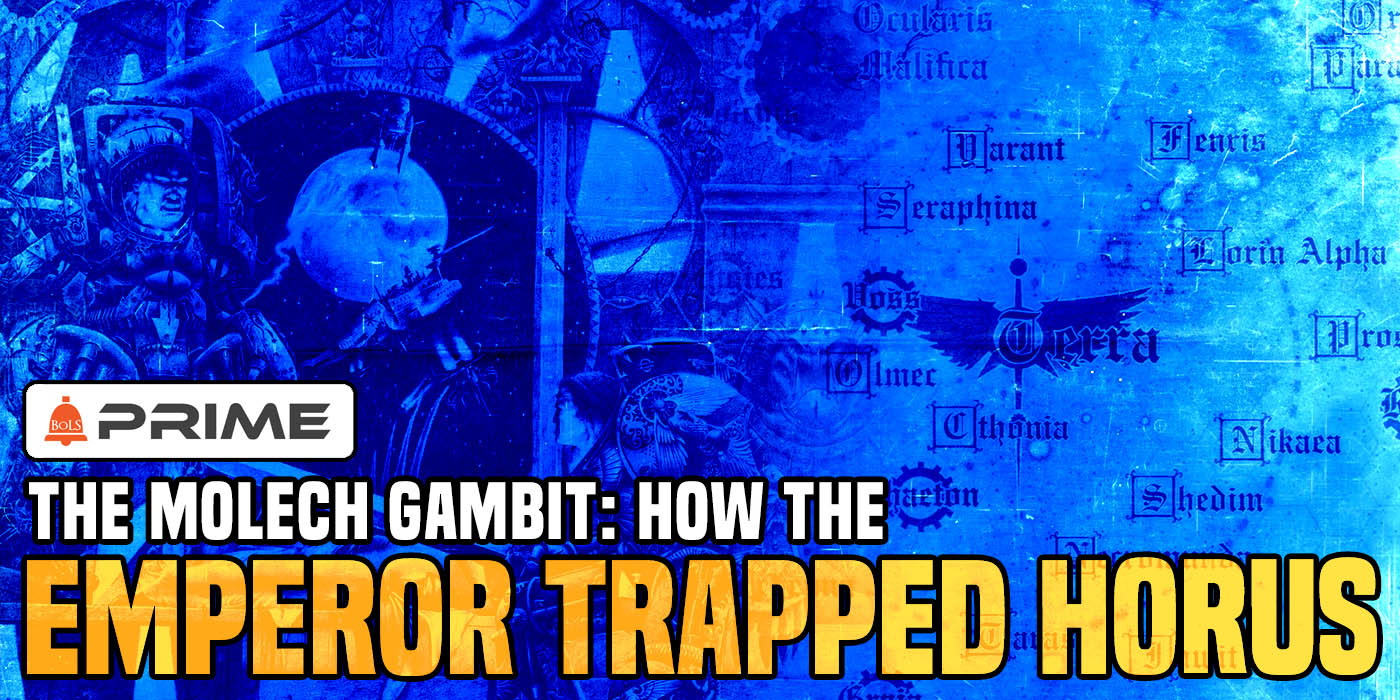Today we look at how Horus' victory at Molech was all part of the Emperor's grand plan.
Down through the long ages of Imperial history, the name of Molech conjures visions of a place of mystery and dark deeds. It is -a place of power and treachery, a place of mystery and dark deeds. The Battle of Molech was long known as one of the crucial engagements of the Horus Heresy. First mentioned way back in 1995 in White Dwarf #190, the battle was described as a victory for Horus, and the first place that Deamon infected Knights are described.
The battle has since been expanded on, most notably in the novel Vengeful Spirit. Here Molech is revealed as something like a turning point, not simply another battle but the point that Horus reached his true apotheosis and reached for godhood. We are presented then with the story of Molech as Horus' greatest achievement, where he gained the power to rival the very Master of Mankind. Yet as with many things in the Grim Dark Universe, Molech is not what it seems and the events there are not as clear as they first appear. Rather than a great victory, Molech was, in fact, a trap that Horus fell for, leading to his ultimate downfall.
Part 1- The Story W...

